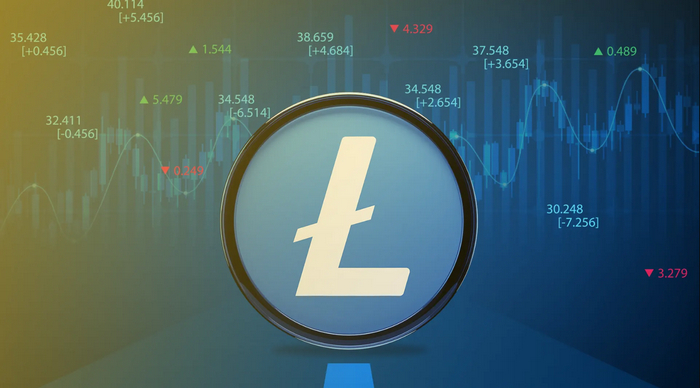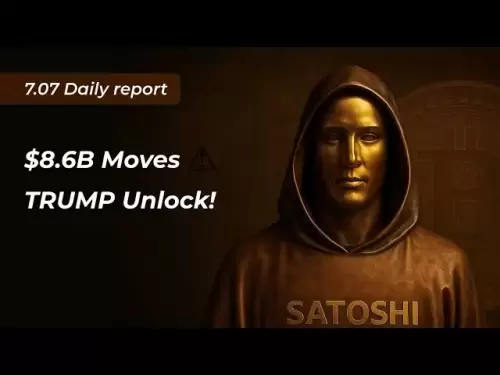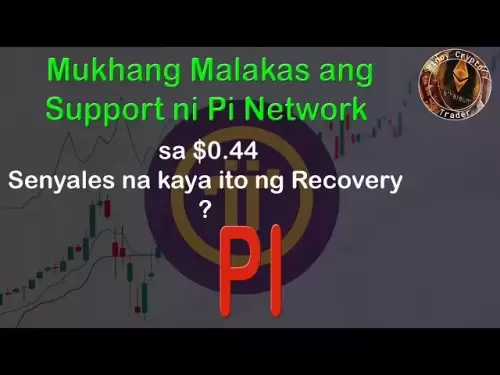-
 Bitcoin
Bitcoin $108,894.1122
0.78% -
 Ethereum
Ethereum $2,576.7002
2.37% -
 Tether USDt
Tether USDt $1.0000
-0.02% -
 XRP
XRP $2.2743
0.90% -
 BNB
BNB $662.6529
1.20% -
 Solana
Solana $152.3741
3.18% -
 USDC
USDC $1.0000
0.01% -
 TRON
TRON $0.2865
0.68% -
 Dogecoin
Dogecoin $0.1718
4.83% -
 Cardano
Cardano $0.5873
2.01% -
 Hyperliquid
Hyperliquid $39.7211
2.09% -
 Sui
Sui $2.9080
0.43% -
 Bitcoin Cash
Bitcoin Cash $495.0930
2.00% -
 Chainlink
Chainlink $13.6045
3.29% -
 UNUS SED LEO
UNUS SED LEO $9.0692
0.54% -
 Avalanche
Avalanche $18.2226
2.15% -
 Stellar
Stellar $0.2486
3.70% -
 Shiba Inu
Shiba Inu $0.0...01176
1.99% -
 Toncoin
Toncoin $2.7908
-7.52% -
 Hedera
Hedera $0.1594
3.69% -
 Litecoin
Litecoin $87.8847
1.25% -
 Monero
Monero $318.2718
0.86% -
 Polkadot
Polkadot $3.3962
1.17% -
 Dai
Dai $0.9999
-0.01% -
 Ethena USDe
Ethena USDe $0.9999
-0.02% -
 Bitget Token
Bitget Token $4.4102
0.34% -
 Uniswap
Uniswap $7.3795
1.39% -
 Aave
Aave $286.7121
5.74% -
 Pepe
Pepe $0.0...01007
3.39% -
 Pi
Pi $0.4602
2.28%
Where to buy and sell Litecoin in 2024? Litecoin buying and selling tutorial
To secure your Litecoin, consider storing it in a hardware wallet like Trezor or Ledger for enhanced security and protection against online threats.
Oct 16, 2024 at 07:12 am

Where to Buy and Sell Litecoin in 2024: A Comprehensive Guide
Litecoin (LTC), a prominent cryptocurrency, has gained increasing popularity over the years due to its faster transaction speeds and lower fees compared to Bitcoin. With its ongoing adoption and growth, understanding where to buy and sell Litecoin efficiently is crucial.
Step 1: Choose a Reputable Exchange
The first step is to select a reliable and secure cryptocurrency exchange. Consider factors such as:
- Security: Look for exchanges with robust security measures like two-factor authentication (2FA) and cold storage for user funds.
- Fees: Compare transaction fees, trading commissions, and withdrawal fees to choose the most cost-effective option.
- Reputation: Check online reviews, social media feedback, and industry rankings to assess the exchange's trustworthiness and user satisfaction.
Step 2: Create an Account
Once you have selected an exchange, create an account by providing personal details, email address, and phone number. Verify your identity through a KYC (Know Your Customer) process, which involves submitting government-issued identification.
Step 3: Deposit Funds
To purchase Litecoin, you need to deposit funds into your exchange account. Most exchanges offer various payment methods, including:
- Bank Transfer: Wire transfers take a few business days but usually have lower fees.
- Credit/Debit Card: Instant deposit option but may incur higher fees.
- Cryptocurrency: Transfer cryptocurrency from another wallet or exchange.
Step 4: Buy Litecoin
Once funds are available, you can place an order to buy Litecoin. You can use various order types, such as:
- Market Order: Buy Litecoin at the current market price.
- Limit Order: Set a specific price at which you want to buy Litecoin.
- Stop-Limit Order: Buy Litecoin when a certain price is reached.
Step 5: Store Litecoin
After purchasing Litecoin, you need to decide how to store it securely. Consider the following options:
- Exchange Wallet: Keep Litecoin on the exchange, which provides convenience but may have lower security.
- Hardware Wallet: Store Litecoin on a dedicated physical device that is not connected to the internet, offering increased security.
- Software Wallet: Install a software wallet on your computer or mobile device for easy access.
Step 6: Sell Litecoin
To sell Litecoin, follow the steps in reverse:
- Place a Sell Order: Choose between market, limit, or stop-limit orders.
- Withdraw Litecoin: Once you sell Litecoin, withdraw the proceeds to your bank account, cryptocurrency wallet, or another exchange.
Best Places to Buy and Sell Litecoin in 2024
Based on industry ratings, security measures, and fee structure, some of the top exchanges for buying and selling Litecoin in 2024 include:
- Binance
- Coinbase
- Gemini
- Kraken
- FTX
Disclaimer:info@kdj.com
The information provided is not trading advice. kdj.com does not assume any responsibility for any investments made based on the information provided in this article. Cryptocurrencies are highly volatile and it is highly recommended that you invest with caution after thorough research!
If you believe that the content used on this website infringes your copyright, please contact us immediately (info@kdj.com) and we will delete it promptly.
- Babylon, Bitcoin, and the EVM Mainnet: A New Era for BTCFi?
- 2025-07-07 16:30:11
- Queen Elizabeth Coin Sells for £31,000: A Royal Fortune in Your Pocket?
- 2025-07-07 16:30:11
- XRP Price Check: Will Resistance Trigger a July Drop?
- 2025-07-07 17:10:12
- UAE, Toncoin, and Golden Visas: Separating Fact from Crypto Fiction
- 2025-07-07 16:50:12
- Toncoin, UAE, and the Golden Visa Mirage: What Really Happened?
- 2025-07-07 17:10:12
- Toncoin's UAE Visa Saga: Hype, Hope, and the Inevitable Pullback
- 2025-07-07 17:15:11
Related knowledge

How to customize USDT TRC20 mining fees? Flexible adjustment tutorial
Jun 13,2025 at 01:42am
Understanding USDT TRC20 Mining FeesMining fees on the TRON (TRC20) network are essential for processing transactions. Unlike Bitcoin or Ethereum, where miners directly validate transactions, TRON uses a delegated proof-of-stake (DPoS) mechanism. However, users still need to pay bandwidth and energy fees, which are collectively referred to as 'mining fe...

USDT TRC20 transaction is stuck? Solution summary
Jun 14,2025 at 11:15pm
Understanding USDT TRC20 TransactionsWhen users mention that a USDT TRC20 transaction is stuck, they typically refer to a situation where the transfer of Tether (USDT) on the TRON blockchain has not been confirmed for an extended period. This issue may arise due to various reasons such as network congestion, insufficient transaction fees, or wallet-rela...

How to cancel USDT TRC20 unconfirmed transactions? Operation guide
Jun 13,2025 at 11:01pm
Understanding USDT TRC20 Unconfirmed TransactionsWhen dealing with USDT TRC20 transactions, it’s crucial to understand what an unconfirmed transaction means. An unconfirmed transaction is one that has been broadcasted to the blockchain network but hasn’t yet been included in a block. This typically occurs due to low transaction fees or network congestio...

How to check USDT TRC20 balance? Introduction to multiple query methods
Jun 21,2025 at 02:42am
Understanding USDT TRC20 and Its ImportanceUSDT (Tether) is one of the most widely used stablecoins in the cryptocurrency market. It exists on multiple blockchain networks, including TRC20, which operates on the Tron (TRX) network. Checking your USDT TRC20 balance accurately is crucial for users who hold or transact with this asset. Whether you're sendi...

What to do if USDT TRC20 transfers are congested? Speed up trading skills
Jun 13,2025 at 09:56am
Understanding USDT TRC20 Transfer CongestionWhen transferring USDT TRC20, users may occasionally experience delays or congestion. This typically occurs due to network overload on the TRON blockchain, which hosts the TRC20 version of Tether. Unlike the ERC20 variant (which runs on Ethereum), TRC20 transactions are generally faster and cheaper, but during...

The relationship between USDT TRC20 and TRON chain: technical background analysis
Jun 12,2025 at 01:28pm
What is USDT TRC20?USDT TRC20 refers to the Tether (USDT) token issued on the TRON blockchain using the TRC-20 standard. Unlike the more commonly known ERC-20 version of USDT (which runs on Ethereum), the TRC-20 variant leverages the TRON network's infrastructure for faster and cheaper transactions. The emergence of this version came as part of Tether’s...

How to customize USDT TRC20 mining fees? Flexible adjustment tutorial
Jun 13,2025 at 01:42am
Understanding USDT TRC20 Mining FeesMining fees on the TRON (TRC20) network are essential for processing transactions. Unlike Bitcoin or Ethereum, where miners directly validate transactions, TRON uses a delegated proof-of-stake (DPoS) mechanism. However, users still need to pay bandwidth and energy fees, which are collectively referred to as 'mining fe...

USDT TRC20 transaction is stuck? Solution summary
Jun 14,2025 at 11:15pm
Understanding USDT TRC20 TransactionsWhen users mention that a USDT TRC20 transaction is stuck, they typically refer to a situation where the transfer of Tether (USDT) on the TRON blockchain has not been confirmed for an extended period. This issue may arise due to various reasons such as network congestion, insufficient transaction fees, or wallet-rela...

How to cancel USDT TRC20 unconfirmed transactions? Operation guide
Jun 13,2025 at 11:01pm
Understanding USDT TRC20 Unconfirmed TransactionsWhen dealing with USDT TRC20 transactions, it’s crucial to understand what an unconfirmed transaction means. An unconfirmed transaction is one that has been broadcasted to the blockchain network but hasn’t yet been included in a block. This typically occurs due to low transaction fees or network congestio...

How to check USDT TRC20 balance? Introduction to multiple query methods
Jun 21,2025 at 02:42am
Understanding USDT TRC20 and Its ImportanceUSDT (Tether) is one of the most widely used stablecoins in the cryptocurrency market. It exists on multiple blockchain networks, including TRC20, which operates on the Tron (TRX) network. Checking your USDT TRC20 balance accurately is crucial for users who hold or transact with this asset. Whether you're sendi...

What to do if USDT TRC20 transfers are congested? Speed up trading skills
Jun 13,2025 at 09:56am
Understanding USDT TRC20 Transfer CongestionWhen transferring USDT TRC20, users may occasionally experience delays or congestion. This typically occurs due to network overload on the TRON blockchain, which hosts the TRC20 version of Tether. Unlike the ERC20 variant (which runs on Ethereum), TRC20 transactions are generally faster and cheaper, but during...

The relationship between USDT TRC20 and TRON chain: technical background analysis
Jun 12,2025 at 01:28pm
What is USDT TRC20?USDT TRC20 refers to the Tether (USDT) token issued on the TRON blockchain using the TRC-20 standard. Unlike the more commonly known ERC-20 version of USDT (which runs on Ethereum), the TRC-20 variant leverages the TRON network's infrastructure for faster and cheaper transactions. The emergence of this version came as part of Tether’s...
See all articles

























































































